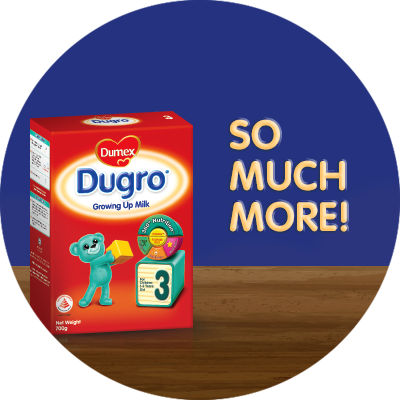Breastfeeding is the best for babies and a healthy diet / maternal nutrition is important when breastfeeding. A decision not to breastfeed can be difficult to reverse. Infant formula is suitable from birth when babies are not breastfed. It is recommended that all formula milks be used on the advice of a doctor, midwife, health visitor, public health nurse, dietitian, pharmacist, or other professional responsible for maternal and child care and the financial implications should be considered. All preparation and feeding instructions should be followed carefully as inappropriate preparation could lead to health hazards.
Why Is Fibre Important and How Much Fibre Do We Need?
Fibre is important for regulating bowel movement and eating food high in fibre will encourage healthier eating habits for the future.
There are many types of fibre, they can be broadly categorized into 2 groups:
- Soluble fibre
- Insoluble fibre
Soluble fibre is found mostly in fruits, vegetables, beans and certain cereals such as oats. Good sources of insoluble fibre are whole grain cereal products such as wholemeal bread, wholemeal pasta, brown rice and high fibre wheat cereals.
You can boost your child's fibre intake by:
- Serving baked beans on a slice of wholemeal toast
- Topping a serving of cornflakes with fruits, e.g. a tablespoon of raisins or slices of banana
- Mixing low fibre breakfast cereal with high fibre ones
- Offering a serving of fresh fruits at lunch and dinner or as snack in-between meals
- Adding generous servings of vegetables into fried rice or noodles. Cut into tiny pieces so that children cannot pick them out
- Adding unpolished rice to white rice; ¼ brown and ¾ white
- Mixing plain pasta with wholemeal pasta
- Hiding vegetables like carrots and onions into meat dumplings (wonton) or blending potatoes and peas or pumpkin into soups
It is good to give food that provides a mix of both types of fibre as they do have different roles in the body. Please remember that children do not need as much fibre as adults. The US Dietary Recommended intake for fibre is 19g for children 1-3 years old. Here are examples of food sources of fibre:
| Food | Fibre (g) |
| ½ small apple | 1 |
| ½ cup cornflakes | 0.5 |
| ½ cup carrots | 0.8 |
| 1 slice wholemeal bread | 1.5 |
| 1 slice papaya | 0.5 |
| 1 cup white rice | 0.5 |
| 1 cup brown rice | 1.6 |
Do not go overboard and give your child too much fibre as it may have negative effects especially in young children. Firstly, fibre makes children (and adults) feel fuller faster and longer. This may reduce the amount of food eaten and could affect children’s' overall growth and development. Too much insoluble fibre may prevent effective absorption of iron and calcium. The risk of constipation is also increased if there is too much insoluble fibre and too little water. So, alternate white bread with fruit bread or wholemeal and wholegrain bread. Use a mix of white and brown rice rather than just brown rice alone. Ensure that your child is eating food from all the food groups.


Ask Our Careline
Whatever’s on your mind, we’re here to help




